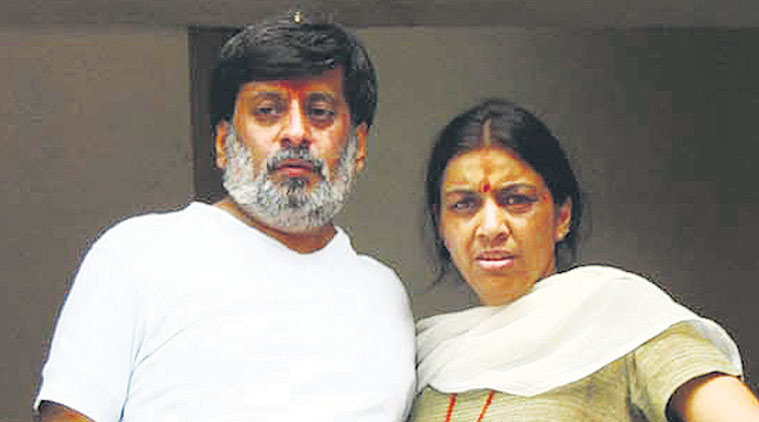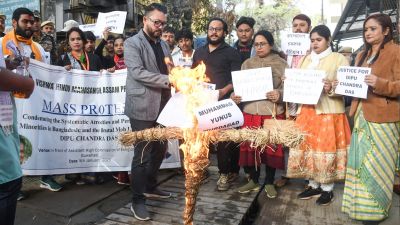Stay updated with the latest - Click here to follow us on Instagram
Aarushi murder case: We aimed to demolish CBI case that was not based on conclusive evidence, says Talwars’ lawyer
“We aimed to defeat the hypothesis that there were only four persons in the flat that night by establishing the presence of outsiders,” said Rajarshi Gupta, one of the counsel.
 Rajesh and Nupur Talwar are in Ghaziabad’s Dasna jail. (File Photo)
Rajesh and Nupur Talwar are in Ghaziabad’s Dasna jail. (File Photo)
A DAY after the Allahabad High Court acquitted Rajesh and Nupur Talwar of the murder of their daughter Aarushi and domestic help Hemraj, their counsels on Friday said they had aimed at demolishing CBI’s arguments on the basis of “lack of conclusive evidence” to prove the prosecution’s charges.
“We aimed to defeat the hypothesis that there were only four persons in the flat that night by establishing the presence of outsiders. The whisky bottles, the loo being used by several persons, the domestic help’s misleading statements about the outer door and evidence such as forensic reports on the possibility of the Talwars not being able to hear anything happening outside as the AC was on in their room,” said Rajarshi Gupta, one of the counsels.
He added that the prosecution had never managed to prove the motive behind the murders. “We aimed to demolish the prosecution’s theory that Rajesh Talwar had acted in a fit of rage when he saw Aarushi in a compromising position with Hemraj, by establishing that there was no conclusive evidence of Hemraj having had sexual contact with Aarushi. Establishment of motive is crucial to a case built on circumstantial evidence,” Gupta said.
Alleging that CBI was “tampering with evidence”, he said: “The CBI had begun tampering with evidence, including the blood-stained pillow covers found in Hemraj and Krishna’s room, when they saw their initial case not holding up. Their witnesses claimed that the Talwars looked guilty because they were not weeping. Several such subjective and unsustainable testimonies were presented in the trial court. The circumstantial evidence they provided was weak and a lot of erroneous or tampered evidence was produced.”







